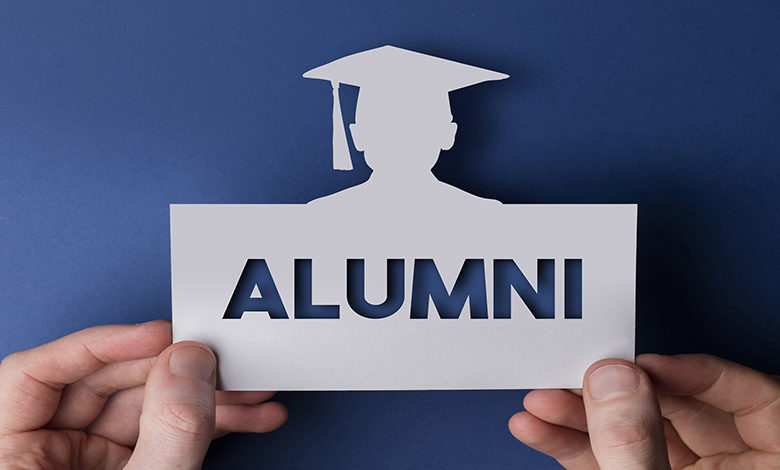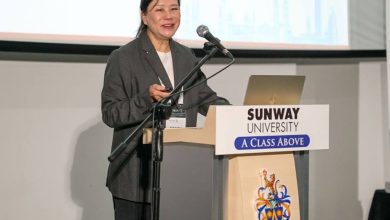‘Alumni’ are typically misunderstood in linguistic terms and in my view often also in a practical sense

Putting my years of studying Latin at school to good use now, let me first stress that the original meaning of this word is not – as commonly assumed – a university graduate. An alumnus is a foster son and an alumna is a foster daughter. Their fostering mother is the Alma Mater, meaning the nourishing mother, the Latin nickname of the university where one studied. The mother nourishes her adopted children with knowledge (scientia), wisdom (sapientiae as in Homo Sapiens) and of course Virtus(virtue). Over the centuries the university have drifted quite far away from these classical roots and Alma Mater now tends to refer solely to the university where the alumn obtained his or her degree.
My view on Alma Mater and her alumni is much closer to these linguistic origins. Let me illustrate this with five simple questions.
When do you become an alumnus?
In linguistic terms you become an alumnus when you join your university and I fully endorse that thinking. Becoming an alumnus only when you graduate is too late. You create your networks with peers whilst studying and you want to keep those networks with you during your entire life. For many universities their interest in alumni start only after graduation, or even later, and they approach it as a top-down relationship. But for me, alumni relationships are first and foremost horizontal: the networks. It is the primary role of universities to stimulate the creation of those horizontal networks as they are of lifetime value to graduates. The Alma Mater is to be supportive in this, not directive, I believe. The creation of alumni networks start whilst studying, even linking different generation alumni, and the nourishing mother should actively help create that family spirit.
What the best nourishing academic mother also should seek to do, in my opinion, is to instil a love for learning. Education is about more than merely teaching basic knowledge and useful skills. Understanding what learning is about and why it is so valuable in life, that insight is what a great university wants to cultivate amongst its adopted sons and daughters. This is going much further than being a student seeking to obtain a piece of paper. Lifelong passion and appreciation for learning and discovery is the real objective of a great Alma Mater. Ability to learn through reflection, not just in terms of profession and economic gain, is the secret to success in later life. This is not merely dependent on the inspiring Professor in front of the class, the role of fellow alumni weights probably even heavier. As I argued many times before, learning is not just a classroom thing.
What does it mean, to be an alumnus?
I would say that at the core of the relationship of an Alma Mater and its alumni is emotion. Nourishing is not just about feeding; it is just as much about creating and maintaining warm feelings. The alumni are not just consumers of knowledge and skills, this is a community tie which touches the whole person. In my view the best education is much broader, covering scientia, sapientae and virtus. With this I mean: the understanding that knowledge needs to be acquired, continuously; and that knowledge alone is not enough but needs to be polished with wisdom as a growing insight and understanding; plus finally that knowledge and wisdom are executed in a virtuous manner, accepting the importance of ethical values, of stewardship, of sense of responsibility. This creates true all-round alumni, well set for life, able to use that insight in appreciating what life and work are really about. Moreover, the warm connection between the Alma Mater, the alumni retain a lasting feeling, it is not a relationship that ends or starts upon graduation. The Alma Mater’s community is created and continues to exist, like any family tie. Sure, it creates the old boys’ and girls’ networks which at times might be irritating for outsiders, but such is the strength of family feelings.
When do you end being an alumnus or alumna?
For me the answer to this question is: the lack of emotional link, no more passion for learning, failing of appreciation for the connection between scientia-sapientiae-virtus, ends – in spirit and fact – the relationship between alumni and their Alma Mater, rather than the technicality of whether someone has earned a piece of paper or not.
What does it take to be an Alma Mater?
A good mother cares and is not merely selling services. She not only fosters the children, but also the sense of family and continues to do so on a lifelong basis. One of my favourite phrases is ‘a student is for life’ and going back to the original sense of alumnus and alumna it really refers to that. It is the very opposite of a family relationship that ends when kids leave home and is replaced by requests for money. Such donations surely will come, if the alumni and alumnae relationships were created during the study time and were built upon emotion rather than just a business transaction.
When does an Alma Mater becomes a bad mother?
As in every family a selfish or manipulative relationship is toxic. The mother nourishes, gives, often selfishly, sometimes enabled by the support of previous generations. In a bad relationship the focus is exclusively about what the mother institution can get back from its alumni, often in return for vanity incentives. Interestingly the most generous unrestricted alumni donations spring from gratitude. Moreover, the ‘purest’ donations are heavily biased towards current and future generation students. They are triggered by the feeling of wanting to share some of the financial success that can be traced back to the study time but also by a sense of responsibility. The latter is less about rationality and more about the feeling of obligation to take care of ‘the family’ and is rarely about a one-off donation. Often the first donation is – unconsciously – a test to see if the Alma Mater is able to handle the gift responsibly and also to see if the gratitude is mutual. A good Alma Mater knows how to value gifts and to say a suitable ‘thank you’ even if the initial donation is modest. Of course, we all know that if an institution is mismanaged, gets into financial trouble, creates negative publicity due to internal divisions, alumni tend to turn away from their Alma Mater.
But not every university has to be a Nourishing Mother?
I refer consistently to an Alma Mater; I do not argue that all universities should be or even should want to be Alma Maters. Education in our society is often treated like a commodity and if there is a market for that, who I am to disagree?
At many universities we have a rational relationship between education provider and diploma seeker, with graduation and commencement as the terminus of the educational relationship. Of course, this can be a very good university, offering great value for money and possibly even with some respectable ranking. But in my mind, for me this is a university with students, not an Alma Mater with a growing community of alumni in a lifelong pursue of scientia, sapientiae and virtus. My views therefore are not intended as a value judgement, but rather an observation and hopefully helps to explain what being an alumnus or alumna really means, how the sense of being alumni and alumnae emerges and what is the real value of being part of one’s Alma Mater’s alumni network. But the richness of the higher education landscape accommodates great diversity. It is true I doubt if ever there would be something like a google-type university, it ever will become an Alma Mater in the original sense of the term, with graduates proud of their old institution. But then again, if indeed such an institution were to emerge, it probably couldn’t care less about that.
Prof dr Maurits van Rooijen
Chief Academic Officer, Global University Systems (www.gus.global)
Rector, University of Europe for Applied Sciences Germany




